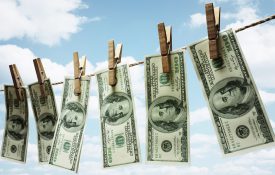-
Does Corruption Happen Slowly, or All at Once?
The Atlantic: If someone’s about to go into a cold swimming pool, they’ll probably use one of two tactics. They might dip a toe in, wade in to the ankles, and slowly, slowly inch their Visit Page
-

When a “Golden Opportunity” to Bribe Arises, It’s Hard to Pass Up
Studies led by researchers at VU Amsterdam suggest that the path to corrupt behavior may sometimes be a steep cliff instead of a slippery slope, contrary to popular belief. Visit Page
-
Psychology can explain why wildly successful teams get tempted to the dark side
Quartz: A few years ago, Google conducted a massive internal study to understand how to build an effective team. Researchers concluded that the most important ingredient for good teamwork was psychological safety—in which members of Visit Page
-
Whose Life Should Your Car Save?
The New York Times: The widespread use of self-driving cars promises to bring substantial benefits to transportation efficiency, public safety and personal well-being. Car manufacturers are working to overcome the remaining technical challenges that stand Visit Page
-

How Dishonest Behavior Can Turn Into Corporate Misconduct
Focusing on customer service can help to boost business performance, but high ethical standards also play an important role in driving these outcomes, researchers find. Visit Page
-

In Defense of Suzanne Corkin
In “The Brain That Couldn’t Remember,” published in The New York Times Magazine* on August 7, 2016, journalist Luke Dittrich raises what he suggests are ethical issues surrounding the testing of Henry Molaison, the well-known Visit Page

